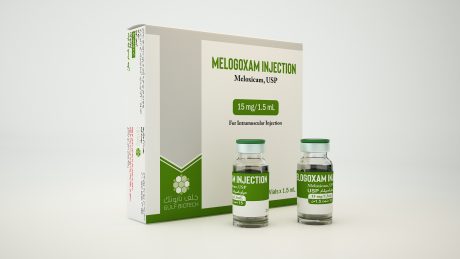Description
What is Meloxicam?
Meloxicam is a nonsteroidal anti-inflammatory drug (NSAID). It works by reducing hormones that cause inflammation and pain in the body. Meloxicam is used to treat pain or inflammation caused by rheumatoid arthritis and osteoarthritis in adults. Meloxicam is also used to treat juvenile rheumatoid arthritis in children who are at least 2 years old.
Important information
Meloxicam can increase your risk of fatal heart attack or stroke, especially if you use it long term or take high doses, or if you have heart disease. Do not use this medicine just before or after heart bypass surgery (coronary artery bypass graft, or CABG).
Get emergency medical help if you have chest pain, weakness, shortness of breath, slurred speech, or problems with vision or balance.
Meloxicam may also cause stomach or intestinal bleeding, which can be fatal. These conditions can occur without warning while you are using meloxicam, especially in older adults.
Call your doctor at once if you have symptoms of stomach bleeding such as black, bloody, or tarry stools, or coughing up blood or vomit that looks like coffee grounds.
Avoid smoking and drinking alcohol as they also increase your risk of stomach bleeding.
Ask a doctor or pharmacist before using any other cold, allergy, or pain medicine. Medicines similar to meloxicam are contained in many combination medicines. Check the label to see if a medicine contains an NSAID (non-steroidal anti-inflammatory drug) such as aspirin, ibuprofen, ketoprofen, or naproxen.
Meloxicam can increase your risk of fatal heart attack or stroke, especially if you use it long term or take high doses, or if you have heart disease. Even people without heart disease or risk factors could have a stroke or heart attack while taking this medicine.
Do not use this medicine just before or after heart bypass surgery (coronary artery bypass graft, or CABG).
Meloxicam may also cause stomach or intestinal bleeding, which can be fatal. These conditions can occur without warning while you are using meloxicam, especially in older adults.
You should not use meloxicam if you are allergic to it, or if you have ever had an asthma attack or severe allergic reaction after taking aspirin or an NSAID.
To make sure meloxicam is safe for you, tell your doctor if you have:
- heart disease, high blood pressure, high cholesterol, diabetes, or if you smoke;
- a history of heart attack, stroke, or blood clot;
- a history of stomach ulcers or bleeding;
- asthma;
- kidney disease (or if you are on dialysis);
- liver disease; or
- fluid retention.
Taking meloxicam during the last 3 months of pregnancy may harm the unborn baby. Tell your doctor if you are pregnant or plan to become pregnant.
Meloxicam may cause a delay in ovulation (the release of an egg from an ovary). You should not take this medicine if you are undergoing fertility treatment, or are otherwise trying to get pregnant. Meloxicam can pass into breast milk and may harm a nursing baby. Talk to your doctor before breastfeeding while using this medicine.
Meloxicam is not FDA approved for use by anyone younger than 2 years old.


